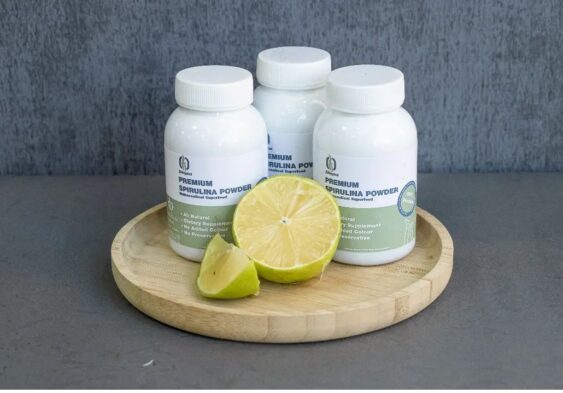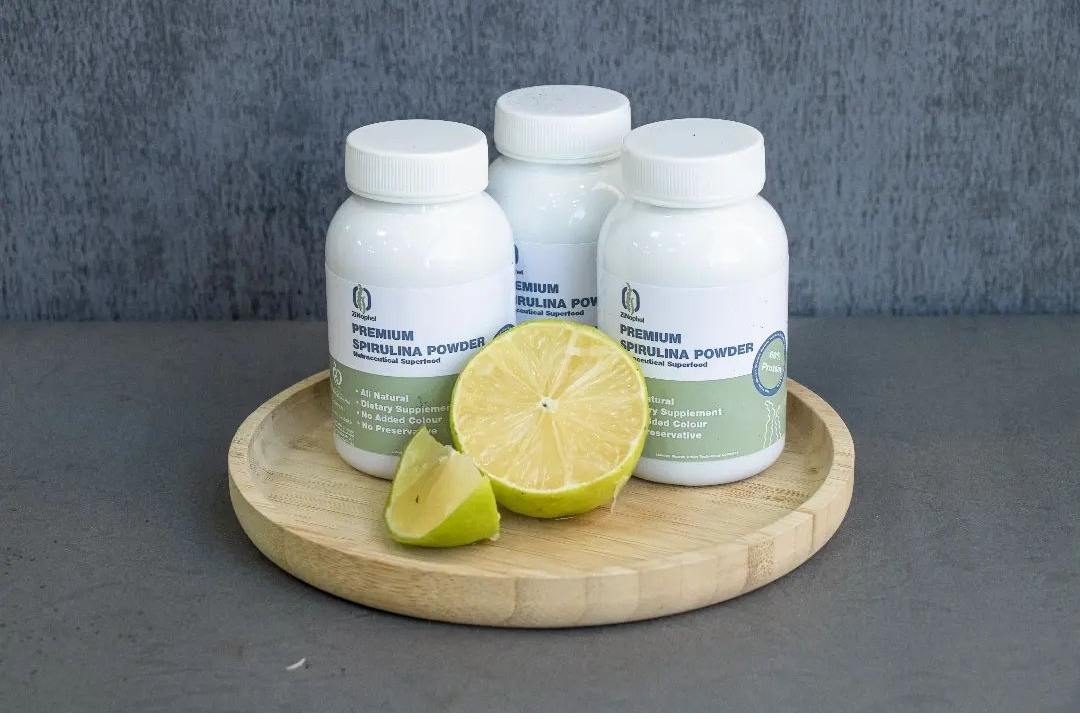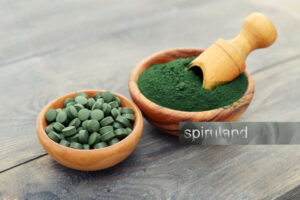

Unlocking the Nutritional Power: The Marvel of Spirulina Tablets In the realm of superfoods, Spirulina has emerged as a nutritional powerhouse, and one convenient way to incorporate it into your daily routine is through Spirulina tablets. Rich in essential vitamins, minerals, and antioxidants, these tiny tablets offer a convenient and efficient means of reaping the […]
In the realm of superfoods, Spirulina has emerged as a nutritional powerhouse, and one convenient way to incorporate it into your daily routine is through Spirulina tablets. Rich in essential vitamins, minerals, and antioxidants, these tiny tablets offer a convenient and efficient means of reaping the numerous health benefits associated with Spirulina.
From its humble beginnings as a traditional dietary supplement in ancient civilizations, Spirulina has captivated the world with its remarkable nutritional profile. Today, it stands as a true superfood, earning its place among the world’s most nutrient-dense foods.
Whether you’re seeking to boost your immune system, enhance energy levels, or simply improve your overall well-being, Spirulina tablets may be the key to unlocking a world of nutritional benefits. As with any supplement, it’s crucial to approach Spirulina tablets as part of a balanced diet and consult with a healthcare professional to ensure they align with your individual health needs.

Spirulina, scientifically known as Arthrospira platensis, is a type of cyanobacteria or blue-green algae that thrives in warm, alkaline waters. Historically, spirulina has been a dietary staple for various communities, particularly in parts of Africa and Central America, where it has been harvested from natural lakes. In recent years, it has gained global recognition as a superfood owing to its exceptional nutritional content. Comprising approximately 60-70% protein by weight, spirulina stands out as an excellent plant-based protein source, making it an invaluable dietary addition for vegetarians and vegans.
Beyond its protein content, spirulina is a nutritional powerhouse, providing an array of essential vitamins and minerals. It is rich in B vitamins, including B12 – a nutrient often challenging to obtain from plant-based sources. Spirulina is also a robust source of iron, essential for oxygen transport in the blood, and offers significant amounts of magnesium, calcium, and potassium. Moreover, the vibrant green hue of spirulina is indicative of its high antioxidant content, primarily in the form of beta-carotene, which supports cellular health and helps combat oxidative stress.
Consumers often seek spirulina for its potential health benefits, and research suggests various positive outcomes. Studies have pointed to spirulina’s role in bolstering the immune system, reducing inflammation, and even supporting cardiovascular health. Additionally, spirulina may contribute to detoxification by binding to heavy metals in the body, aiding their elimination. As a versatile and sustainable nutrient source, spirulina continues to captivate individuals looking to enhance their overall well-being through natural and nutrient-dense means.

One of the key reasons for Spirulina’s rise to fame is its impressive nutritional content. Spirulina is a complete protein, meaning it contains all nine essential amino acids that the human body cannot produce on its own. A typical serving of 1 gram (1,000 milligrams) of Spirulina provides approximately 4 grams of protein.
Additionally, Spirulina is a rich source of vitamins, including:
Vitamin B12: A crucial nutrient for red blood cell formation and nervous system function, Spirulina is an excellent source of vitamin B12, providing approximately 2.4 micrograms per gram (1,000 milligrams).
Vitamin K: Important for blood clotting and bone health, Spirulina contains approximately 12 micrograms of vitamin K per gram (1,000 milligrams).
Beta-carotene: A precursor to vitamin A, beta-carotene is abundant in Spirulina, providing approximately 6.4 milligrams per gram (1,000 milligrams).
Spirulina also contains a variety of essential minerals, including:
Iron: Essential for oxygen transport in the blood, Spirulina is a rich source of iron, providing approximately 1.1 milligrams per gram (1,000 milligrams).
Magnesium: Important for muscle function, nerve transmission, and energy production, Spirulina contains approximately 5.6 milligrams per gram (1,000 milligrams).
Calcium: Essential for bone health and muscle function, Spirulina provides approximately 9 milligrams per gram (1,000 milligrams).
Spirulina’s nutrient profile is complemented by its high concentration of antioxidants, including phycocyanin, a pigment that gives Spirulina its blue-green hue and has potent antioxidant and anti-inflammatory properties.
While Spirulina can be consumed in its raw or powdered form, Spirulina tablets provide a more convenient and palatable alternative. The tablets are easy to swallow, portable, and have a longer shelf life compared to powdered forms, making them an ideal choice for those with a busy lifestyle or who find the raw or powdered form less appealing.
The recommended dosage of Spirulina tablets may vary, but it’s generally advised to start with a small amount and gradually increase as your body adjusts. Consulting with a healthcare professional before adding any supplement to your routine is always a wise decision.
Spirulina tablets offer a convenient and potent way to integrate this nutrient-dense superfood into your daily routine. Whether you’re looking to boost your immune system, increase your energy levels, or simply improve your overall well-being, Spirulina tablets may be the key to unlocking a world of nutritional benefits. As with any supplement, it’s crucial to approach Spirulina tablets as part of a balanced diet and consult with a healthcare professional to ensure they align with your individual health needs.